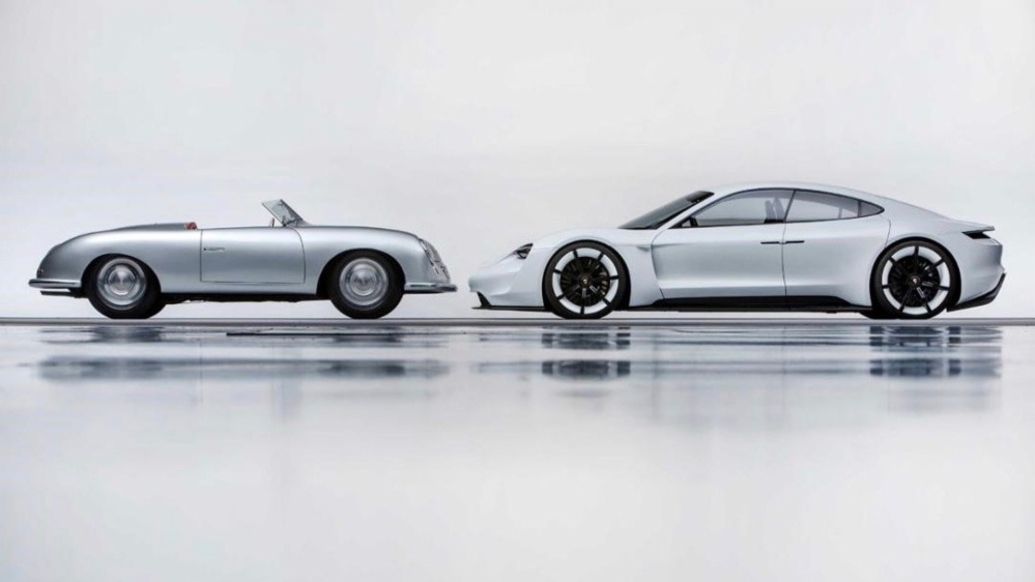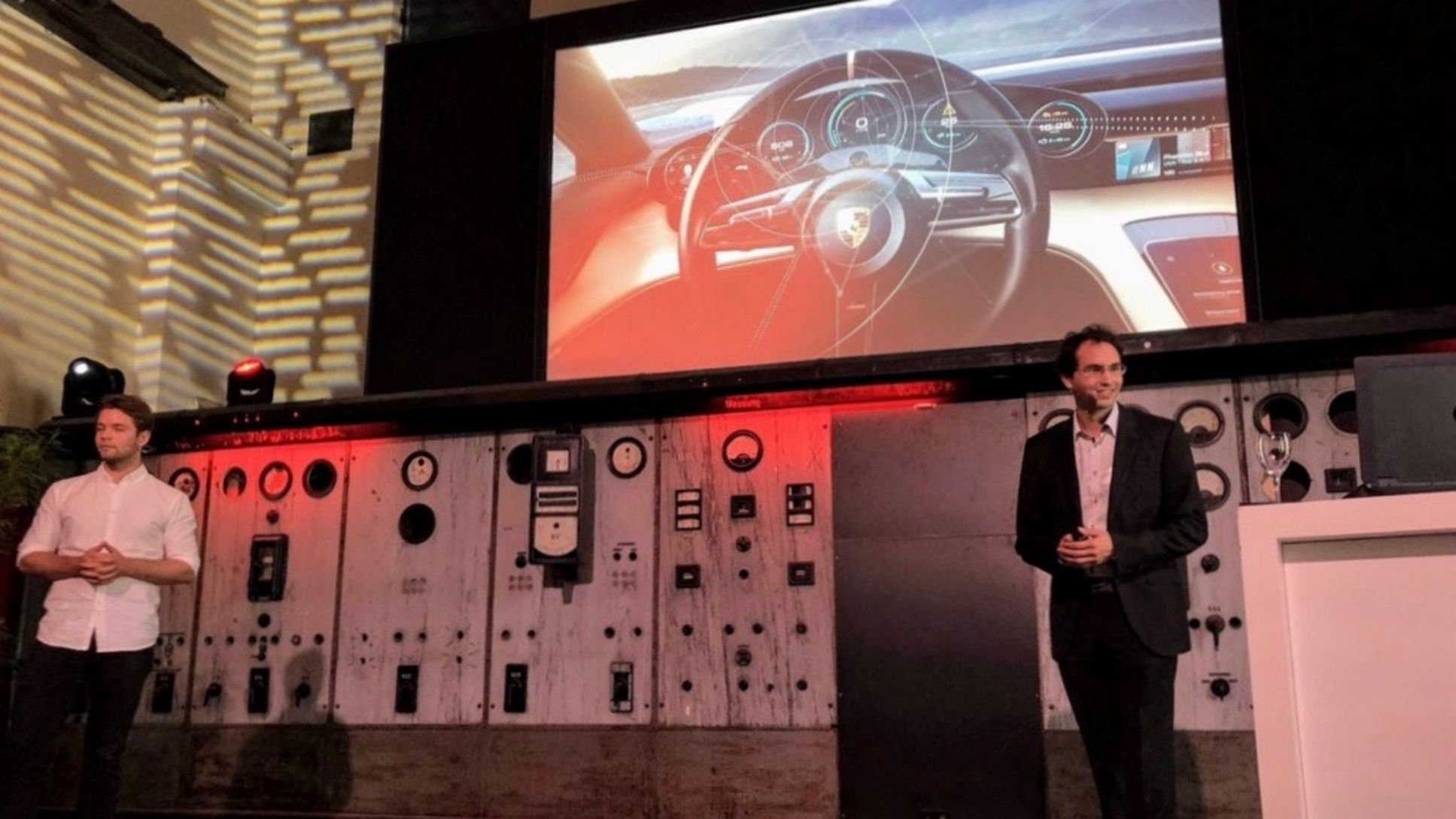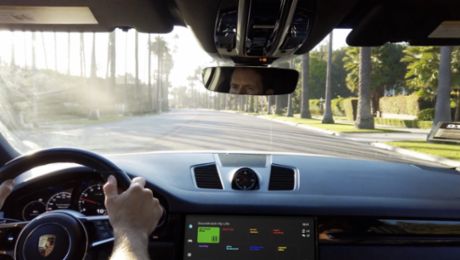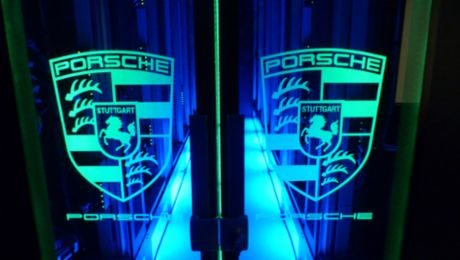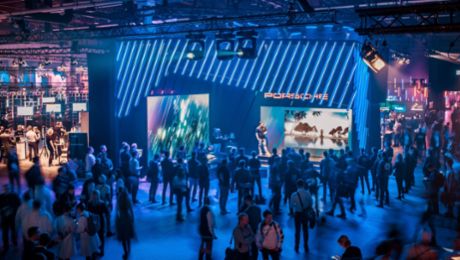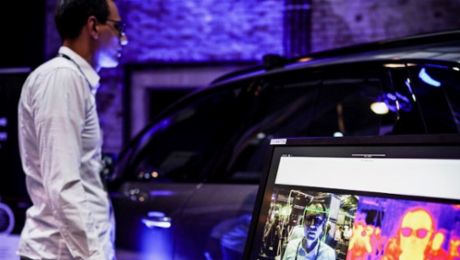Together with startup XAIN, Porsche talked about collaborative innovation of blockchain technology at the Hightech Summit Baden-Wuerttemberg 2018. The event, which is dedicated to exchanging experiences and discussing developments in tech such as blockchain and IoT, took place in Rottweil, the oldest city in the German state, in an old ‘Kraftwerk’ — a former powerhouse.
Our collaboration
At the Hightech Summit Baden-Württemberg, we talked about Blockchain at Porsche, and how we integrated the first Blockchain into a Porsche vehicle a little while ago together with XAIN. On behalf of my dear colleague Anja Hendel, I represented the Porsche Digital Lab, presenting our cooperative project with Nick de la Forge from XAIN AG.
Innovation is a core element of Porsche’s 2025 corporate strategy with the first Porsche Innovation Contest on Blockchain that was launched in 2017. Among more than 100 other participants, XAIN AG won the contest. In addition to the prize money, Porsche also joined forces with XAIN for a pilot project together with the SpinLab Accelerator: Most of you know the results, as they have been published worldwide, e.g., in International Business Times, Business Insider, Forbes or MSN and in Germany by Handelsblatt, Welt and Computerwoche.
Since then, the startup XAIN has been quite successful and expanded ever since after receiving a seed investment of €6M led by Earlybird Venture Capital.
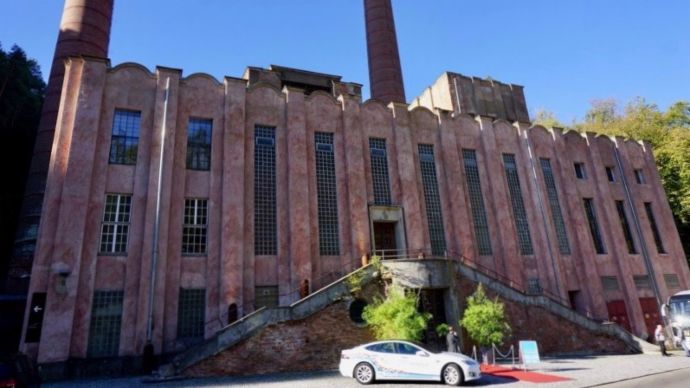
What are the new uprising trends — or is it only one?
As well as the Porsche Digital Lab’s 2017 topics, the themes dominating the agenda of this event were Artificial Intelligence, Internet of Things and, of course, Blockchain. These technologies, especially their impact on the two particular areas Mobility and Smart Cities, are on the rise.
The advanced analysis of data and its pattern within (AI), the hardware availability of sensor data (IoT) and the decentral and secure computation and connectivity (Blockchain & DLT) all go back to one big thing: data!
In this regard, the talk of Heiko Meyer from HPE was very interesting: Only 1% of the current data is used for analytical purposes, and the decentral / central computation is coming in waves:- The stored business data of even the world biggest companies often contains a few dozen petabytes (e.g. 40 petabytes at Walmart)
- On social network and media websites this amount of data is currently generated within a few days (e.g. 3–4 petabyte of pictures per day at Facebook)
- In comparison to that, semi-autonomous vehicles in 2020 are predicted to produce 40.000 petabyte each day.
→ This data needs localized smart computation (fog intelligence) and a decentral infrastructure. That is one reason, why Blockchain and Distributed Ledger Technologies (DLT) need to be implemented so fast.
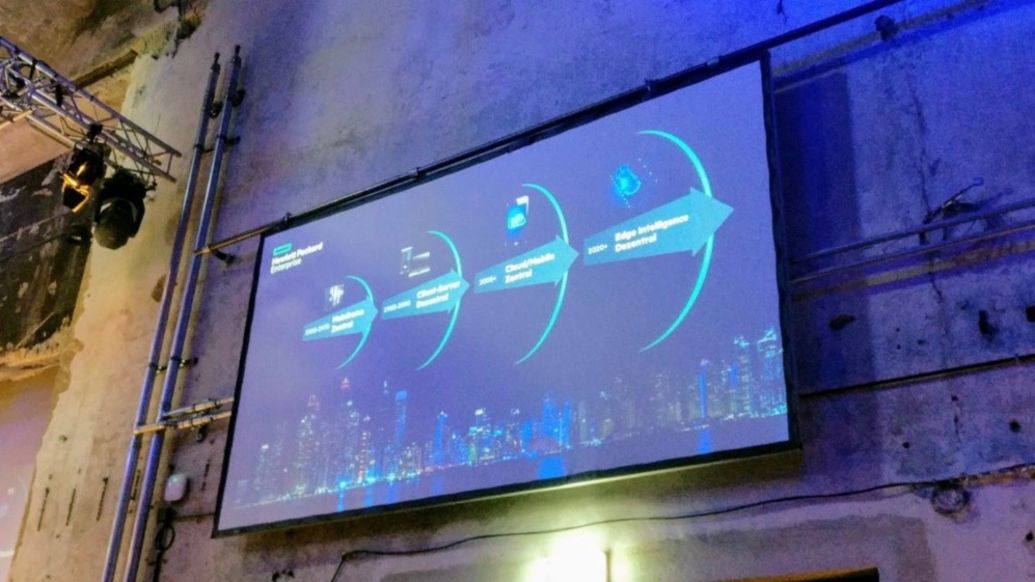
New and old
Nowadays, companies — based on their innovation and technology decisions — can become world leaders or, in contrast, irrelevant within a decade. On the other hand, there are traditions and values that are almost timeless — this includes f.e. the fascination of oldtimers, architectural design or historical monuments.
In Rottweil, the contrast could hardly be any greater. The city is the oldest in Baden-Wuerttemberg, founded in 73 AD. Despite having only 25k inhabitants and its small size, it is still impressive. For example, the small hotel I stayed at during the summit was built in 1286. It has lived through centuries, the dining room was built in the 15th century in Gothic style with wooden panelling and painted in the time of Art Nouveau (Jugendstil) with ‘modern’ colours.
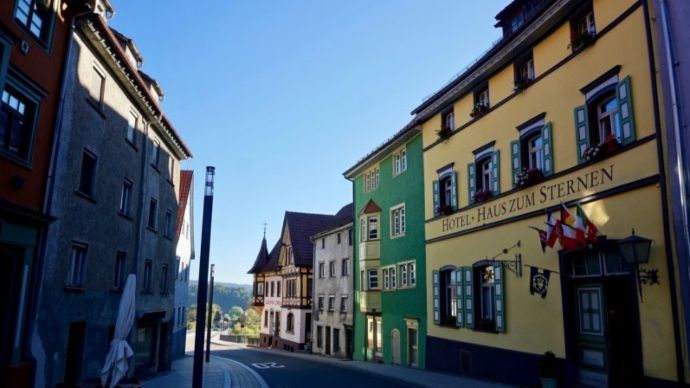
The connection — How do tradition and high-tech fit together?
While the traditional rooms have been preserved and restored as far as possible, there is also Wi-Fi in everyone of them. Strictly speaking, this wireless technology has added a new dimension to the house. It benefits the protection of historical monuments and yet connects everyone in each room with the whole world.
Looking at it more broadly, quite often new technologies are not replacing the traditional environment, but adding a new dimension to it: For example artificial intelligence is often seamlessly integrated into today’s world. As soon as ‘AI functions’ are common to people (e.g. typing suggestions), they are not even recognized as AI anymore, as for example Chris Boos tweeted about.
Blockchain is compared by Nick de la Forge (XAIN AG) and others with the http protocol of the 90s: Users and customers don’t have to see or understand the technology. Yet the World Wide Web brought huge changes to them.
All in all, visiting Rottweil and attending the Hightech Summit were a great experience. On a final note, I’d like to congratulate the award winning startups of the Hightech Summit!
